Please click on the name of the EH MATTERS fellow to navigate to their profile:
Fall 2021 Cohort
Connor Castillo ‘24 Environmental Studies
Giancarlo Ceja '24 Environmental Studies and International Relations
Alina Mercado '24 Health Promotion and Disease Prevention
Shreya Kashyap '23 Human Biology
Sydney Powell '24 Health Promotion and Disease Prevention
Spring 2021 Cohort
Ainaz (Dory) Barkhordarzadeh '21, Health Promotion and Disease Prevention
Zainab Hasan '22, Global Health
Isabella Hernandez '23, Health Promotion and Disease Prevention
Oscar Reyes '23, Urban Planning
Jessica Santos '22, Chemical Engineering
Tim Saunders '23, Biological Sciences
Leon Zha '23, Quantitative Biology
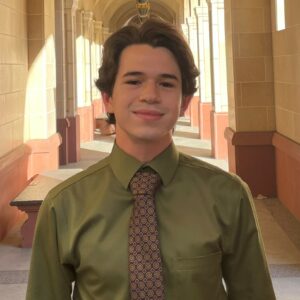
How do you hope to make a difference in environmental health?
As someone who has always had a passion for the outdoors and the environment, I hope to use the research I pursue to assist in bridging the gap between scientific research and policy/educational change that can benefit those in need of environmental justice.
What led you to pursue the EH MATTERS internship?
What led me to pursue the EH MATTERS internship would have to be how specialized of a program it is. To have the ability to work with a mentor for the next two years, and pursue research directly related to environmental health is incredibly exciting.
How do you see this program helping to drive your future?
I want to pursue a career in environmental law and plan on using what I gain from this program to apply that research to a public policy setting.
How do you want to make a difference in public health/environmental health outside of the classroom?
As a predominantly Latinx city, my hometown of San Antonio struggles with similar issues regarding environmental justice as in LA. I plan to make a difference in environmental health outside of the classroom by learning about environmental inequities in the LA area during this program, and using what I learn to apply them to San Antonio.
What message would you like to share with other students wanting to pursue an internship in environmental health?
Regardless of your current internship or research experience, I would highly encourage anybody who is passionate about environmental health to apply. It is so important that individuals from unique educational and personal backgrounds participate in this program, as environmental issues impact every group in differing ways.
What diverse perspective do you bring to EH science, why is it important to have diverse voices and experiences in EH?
Coming from a Latino background, I bring a perspective that takes into consideration the fact that many minority groups are underrepresented in public policy, and disproportionately impacted by environmental issues. It’s vital to have a diverse set of voices and experiences in EH because historically many groups’ voices have been disregarded, and it’s time that changes.
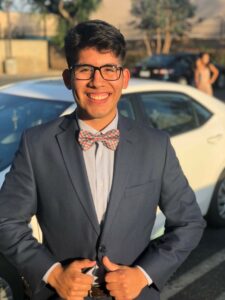
How do you hope to make a difference in environmental health?
Environmental migration is a field that is continuing to grow in interest, and the effects of climate change continue to showcase themselves. I will make a difference in a field by advocating for not only environmental justice but using my International Relations perspective to advocate for new policies and laws regarding the harmful environmental practices of multinational corporations and strengthening environmental protections laws internationally.
What led you to pursue the EH MATTERS internship?
I was motivated to apply to the EH MATTERS because of the program’s focus on environmental health and justice, as well as the program’s tailoring to take students from under-represented groups. As a student who is still relatively new to the field of environmental studies, I cannot underestimate the value of the education and practices that I am learning through the internship.
How do you see this program helping to drive your future?
The research experience, and the fields that I am researching through the program directly align with my professional aspirations. As I pursue higher levels of education and eventually enter the field of environmental migration, I will look back at the EH MATTERS as a pivotal moment in time for my academic development.
How do you want to make a difference in public health/environmental health outside of the classroom?
Mass environmental protections is a can that is continually being kicked down the road by governments around the world, which is evident by the fact that international climate change agreements (such as the Paris Accords) are currently non-enforcing. I want to make a difference in how governments perceive the seriousness and urgency if the current climate crisis and create enforcing environmental regulations.
What message would you like to share with other students wanting to pursue an internship in environmental health?
As the quote most famously iterated by Barak Obama goes “We are the first generation to feel the effect of climate change and the last generation who can do something about it.” There is not a better time to pursue an internship in environmental health, so go for it!
What diverse perspective do you bring to EH science, why is it important to have diverse voices and experiences in EH?
Coming into the program as an International Relations adds a new viewpoint to the topics that we research within Environmental Health. Also, as my family for years has worked on a ranch in Michoacan, Mexico, I am able to offer unique perspectives as to how climate change has specifically affected agriculture on our ranch. Having diverse experiences and voices within Environmental Health as everyone has an experience within it, and the combining and understanding of these experiences is what allows us to find solutions.
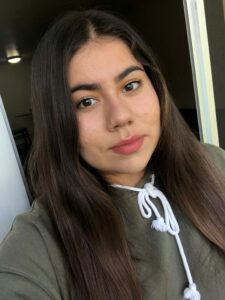
How do you hope to make a difference in environmental health?
Through my intersectional interest in environmental health, education, and policy, I envision aiding underserved communities that lack health resources and provide them with the knowledge on how change can be brought forth. I hope that my perspectives and contributions will be of significant value to the field of environmental health and epidemiology. It’s crucial that more individuals from impacted communities are given the space to share their experiences, collaborate, and ultimately develop a sense of agency in improving their community.
What led you to pursue the EH MATTERS internship?
Coming from a low-income, predominantly Hispanic community, I’ve witnessed and lived in a state where environmental determinants affect the overall health of individuals. In Baldwin Park, these environmental determinants could affect your likelihood of developing future respiratory illnesses or even access to healthy foods. Growing up, I never really questioned the effects of attending school with a freeway running diagonally aside or why my uncle’s house was right next to so many refineries. This was simply the world I knew. I have always been passionate about addressing the environmental health needs of my community, but never had the opportunity to participate in a formal research project. Now as a HPDP student, I’ve realized the importance of research in producing the evidence needed to inform large-scale policies and programs for effective change.
How do you see this program helping to drive your future?
The opportunity to be around environmental health researchers and experts opens the door for knowledge about the field and careers within EH. I have always known that my passion within public health lies at the intersection of community involvement for the underserved, implementation of policy change, and education. Through EH MATTERS mentorship, I hope to develop a greater sense of what this intersectionality of interests looks like within the professional field of environmental health.
How do you want to make a difference in public health/environmental health outside of the classroom?
Because my lived experiences are such grand motivators in my academic pursuit in public and environmental health, I strongly believe in giving back to my community and those alike in aid, knowledge, and health resources. I currently provide high school students with the knowledge and skill sets to advocate, reach out, and receive proper health care resources and information and I feel fulfilled knowing I am making a difference for our underserved youth. But I know I can do more. I believe my input as someone with an intersectional identity aids our research team in understanding communities who are currently facing environmental challenges. Given my unique position, I am capable of serving as a “bridge” between our communities and the research team, allowing for effective communication, building of trust, and sustained engagement.
What message would you like to share with other students wanting to pursue an internship in environmental health?
Go for it!!! Environmental health is a branch of public health I never saw myself going for, yet I soon found it to be one of the most interesting fields out there. With it being such a broad field, I am sure that your field of study can definitely be applied and is welcome! So much goes into our surrounding environment and your specific insight on a certain aspect of the environment or the application of a technique can only be beneficial.
What diverse perspective do you bring to EH science, why is it important to have diverse voices and experiences in EH?
As the daughter of Mexican immigrants and a first-generation college student, I am aware that my perspective on certain environmental health topics and discussions may be different from other students engaged in EH research, but this is exactly why I celebrate and thrive in diverse environments. If we all, collectively, shared the same mentality, there would be no advancement for communities experiencing environmental health injustices. Like diverse communities, diverse student engagement in environmental health ensures that various experiences are heard and learned from. Just as I will share my knowledge and experiences with others, I, too, would learn and become more understanding about other communities’ challenges and learn to better serve all communities. From these diverse experiences and perspectives, we can remain culturally aware, competent, and sensitive to these challenges. My presence and addition to student engagement in environmental health research will serve as a constant reminder that representation matters and that my intersectional identities can only be considered assets towards the betterment of BIPOC communities experiencing environmental injustices.
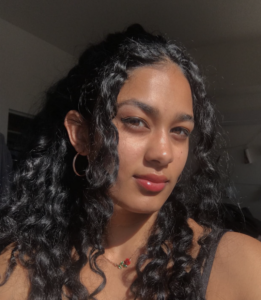
How do you hope to make a difference in environmental health?
I hope to make a difference by focusing on traditionally underrepresented communities and get a better understanding of how environmental exposures impact their health, so this knowledge can be incorporated into preventative and clinical care. I'm also interested in delving into confounding variables and mediating factors for health outcomes caused by environmental hazards, such as an impact on mental health or stress leading to poorer physical health outcomes. Overall, I’m passionate about contributing to a better understanding of environmental health issues by addressing gaps in existing literature and creating long-term change that will benefit impacted individuals.
What led you to pursue the EH MATTERS internship?
I'm pursuing the EH Matters program to build upon my knowledge of social determinants of health. I aim to follow up on my research examining the impact of unconventional oil and gas development on women’s health via community action and education plans, and build an ongoing relationship with local communities through the program. EH Matters is unique in that not only will I be able to research health outcomes of local populations burdened by environmental issues, but also gain experience in advocacy for environmental justice by designing programs tailored to engage impacted communities.
How do you see this program helping to drive your future?
My goal is to positively impact health equity as a student going into healthcare. For me, this requires considering social challenges intertwined with health. The EH Matters internship will serve as a strong foundation to researching environmental issues as a component of healthcare and applying social justice to clinical care. Treating any community requires addressing underlying causes of health issues, and there must be a greater awareness of environmental health impacts and advocacy-based solutions within clinicians.
How do you want to make a difference in public health/environmental health outside of the classroom?
This year, I'm participating in a social emergency medicine class at CHLA studying environmental and community-level health factors. While I'll observe case studies of families enduring environmental exposures, I aim to connect these narratives back to the preventative effect research, advocacy, and education programs can have through the EH Matters program.
What message would you like to share with other students wanting to pursue an internship in environmental health?
I encourage you to apply! A need for research in environmental health and subsequent advocacy is only growing in urgency as our climate crisis unfolds. Getting involved with EH Matters has helped me become intimately familiar with environmental health issues harming the greater Los Angeles community and world, but also have a personal role in focusing on these health issues and working to change these distressing outcomes. If you want to be a part of empowering communities to seek environmental justice, this program has an amazing network of mentors to help you get started.
What diverse perspective do you bring to EH science, why is it important to have diverse voices and experiences in EH?
Diverse voices bring important perspectives to research, from how to approach a question to how to best connect with a community to advocate for their environmental justice. I hope to expand on intersections of EH exposures to new populations to consider women’s health, be an ally to LA's queer neighborhoods, and other areas where researchers haven't targeted or mobilized via community efforts so far.

How do you hope to make a difference in environmental health?
Environmental health research is vital for the well being of society, however, oftentimes vital research is discovered but isn’t shared in a comprehensible manner, especially to disadvantaged communities. My goal in environmental health is to conduct research and develop campaigns based on my findings to educate disadvantaged communities in a simple yet memorable way. One of my favorite health campaigns called Es Tiempo used the blooming of the jacaranda tree to remind women, specifically Latinx women, to get an annual cervical cancer screening. It is these simple yet innovative health campaigns that can save lives and promote healthy behavior.
What led you to pursue the EH MATTERS internship?
Even though we are living in an era where medical advancements have led to a longer lifespan, both manmade and natural risk factors are constantly arising and the health disparities found in the United States healthcare system are unfortunately disproportionately affecting minority and historically oppressed communities. With the emergence of COVID-19, now more than ever it is evident that research is vital in the field of health. I decided to pursue EH MATTERS because I wanted to learn about health issues prevalent in the African American and Latinx community that are not widely known and help develop interventions to keep my community healthy. With so much misinformation found on the news and internet, I hope to be a trustful voice that my community can confide in.
How do you see this program helping to drive your future?
I am currently on a pre-med track and have a goal of being a reproductive endocrinologist. The idea of helping women suffering from infertility start their own families has always been a dream of mine. This program will help me achieve my dream by providing me with research experience and resources that will help me be a skilled physician. In fact, I am currently conducting research on women’s cardiometabolic health during pregnancy and postpartum which is providing me experience working with expecting mothers.
How do you want to make a difference in public health/environmental health outside of the classroom?
The field of health needs more people from different backgrounds and cultures if health equity ever wants to be achieved. Unfortunately, the path to becoming a physician, researcher, or any other profession in health is difficult and requires resources difficult for low income students to obtain. It is for this reason why I joined the Keck Student Ambassadors, an organization that serves as the representatives for the Keck School of Medicine’s undergraduate programs. In this program, I am able to motivate pre-health students to keep reaching for their dreams and provide them with resources to achieve their goals without worrying about their socioeconomic status.
What message would you like to share with other students wanting to pursue an internship in environmental health?
One of the beautiful aspects of interning in environmental health is that the work you are doing is being used to ensure the health of society and save lives. Environmental health is an issue that will always be relevant because it affects everyone and is constantly evolving with society. It is a broad field that encompasses health issues found in different races, cultures, and communities. I highly encourage people passionate about health to consider an internship in environmental health because the opportunities are endless and now more than ever do we need diverse perspectives and ideas.
What diverse perspective do you bring to EH science, why is it important to have diverse voices and experiences in EH?
Being Mexican and African American, I have witnessed and experienced the health disparities and inequity plaquing minority communities. Health discrimination, environmental injustice, and lack of healthcare are just a few issues that many minorities face. To add on, because of the United States history of unethical medical testing there is a lot of distrust towards the medical field. It is for this reason why we need people from diverse backgrounds in the field of health. In order to bring health equity, it is necessary for researchers and educators to have cultural humility and work with people in affected communities. Moreover, with more diverse voices in environmental health, more research can be conducted on underrepresented communities. This is vital, especially with the emergence of COVID-19 affecting all communities in different ways.
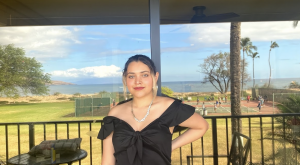
How do you hope to make a difference in environmental health?
Even in the field of environmental health, I wish to pursue my life’s burning passion of creating health equity, especially for communities affected by disparities in health based on their socioeconomic class, race, and ethnicity. By researching the fundamental concepts in environmental health, I want to have the opportunity to participate in improving life expectancies, improving the overall quality of life, and minimizing unjust disparities in health that many community members face. Furthermore, I’m extremely eager to learn more about environmental health; I want to contribute to clean water and reduced air pollution projects, deliver public health workshops, monitor the communities' health trends, and even advocate policy with regard to environmental health with the help of brilliant professors and opportunities given through this program.
What led you to pursue the EH MATTERS internship?
Being born in the Islamic Republic of Iran, a third-world country, I witnessed many of my neighbors, friends, and family members not get the health care that they needed. For instance, when my parents’ car slid off a cliff, they could not afford a surgical procedure to heal their fractured bones. As a result, Iran’s hospitals never took them in. This completely changed my family’s dynamic and lifestyle. I used to think it was the way of the world - that living without access to healthcare was normal. Luckily, due to my Jewish heritage, America had given me the opportunity to flee at a young age and become a citizen. Entering America as a refugee, I witnessed how giving hospitals were when it came to treating patients, even ones who may not be able to afford it. Although we may not have the best healthcare system, this experience was awakening. I also realized the importance of access to healthcare for an individual to live a functional and content life. This made it my life’s passion to work directly in the healthcare system. I want to help people, especially those in poorer neighborhoods and countries, to have equity in healthcare. When it came to the EH MATTERS program, I was offered this exact opportunity of pursuing my life’s burning passion of creating health equity especially for communities affected by disparities in health based on their socioeconomic class, race, and ethnicity.
How do you see this program helping to drive your future?
My goal for the future is to continue improving equity in healthcare for all communities. It has been amazing to start within my own community of Los Angeles with the help of the EH MATTERS program. Participating in this program has already taught me a lot about environmental health, such as the harsh effects that air pollution has on the neurocognitive development of individuals. This program has also given me a rewarding direction to pursue my passion. As a result, I am now more motivated than ever before, more persistent, more energetic, and more optimistic to continue with research and hands-on clinical work in the future to establish equity in healthcare.
How do you want to make a difference in public health/environmental health outside of the classroom?
I hope that by continuing my research in the Herting Lab, I will be able to combat issues that contribute to neurocognitive illnesses and disabilities, especially early on in a child's life. I also hope that such research will allow me to advocate for and work for, hands-on, in improving environmental health -such as air quality, renewable energy, production of wastes, and usage of toxins- in the LA community.
What message would you like to share with other students wanting to pursue an internship in environmental health?
If environmental health is something that you are truly passionate about, apply yourself and challenge yourself to pursue it. In my opinion, it is one of the most rewarding fields to be a part of.
What diverse perspective do you bring to EH science, why is it important to have diverse voices and experiences in EH?
Through my experience as an immigrant, a minority (Persian and Jewish), a refugee, a first-generation college student, and a current citizen of America, I have become fully aware of the importance of the roles that cultural competency and cultural humility play in bringing forth equity in healthcare. With my experiences, I am able to bring up many diverse and logistic points of view to our discussion tables with my professors, peers, and faculty in order to facilitate better communication, outreach, and research. I have also learned the importance of expanding my communication skills with others by building rapport with them, of taking my time to understand other's issues and concerns, and of working together to come up with multiple ways to solving our problems. Additionally, my experiences have taught me to be very empathetic, nonjudgemental, non-stigmatizing, and kind in my tone and behavior to everyone. With this awareness, I can approach and help each of our diverse communities in Los Angeles who comprise many different cultures, races, values, and behaviors. My perspective, along with others, will allow our research at EH MATTERS to be conducted more efficiently and be more meaningful as well as more impactful to our communities in Los Angeles.
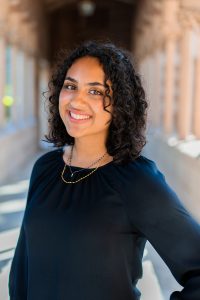
How do you hope to make a difference in environmental health?
I hope to make a difference in environmental health by engaging in environmental justice and using research and epidemiology to find solutions.
What led you to pursue the EH MATTERS internship?
I was motivated to pursue this internship because of my interest in environmental health and epidemiology. Professor Avol talked to me about the EH MATTERS program and I thought it matched my interests perfectly. I have learned a lot since the start of the program and I’m excited to learn more!
How do you see this program helping to drive your future?
I want to pursue a PhD in epidemiology and this program will help me gain skills in environmental health research and epidemiology that will prepare me for a PhD.
How do you want to make a difference in public health/environmental health outside of the classroom?
I want to make a difference in public health by using epidemiology to highlight health disparities and then working with public health practitioners and policy makers to implement changes that will uplift different communities that are facing different health disparities.
What message would you like to share with other students wanting to pursue an internship in environmental health?
Environmental health is a very interesting and increasingly important field; I learn more about it everyday! I would encourage students to reach out to their professors and look for opportunities within the community to learn more and participate.
What diverse perspective do you bring to EH science, why is it important to have diverse voices and experiences in EH?
Environmental health science is a field that requires diverse voices and experiences because of the communities it impacts. My parents immigrated here from Bihar, India and most of my family is from there. When I go to visit, I can see environmental health issues that affect them such as a lack of access to clean water and dangerous levels of air pollution. I can also see environmental health issues where I live in LA including industrial pollution and food deserts. It is important for people from those communities to be able to engage in environmental health science and environmental health justice.
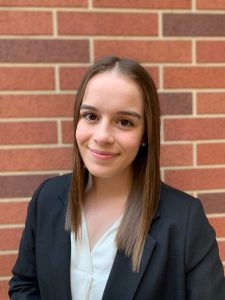
What has been your journey over the last few years?
Over the past few years I have matriculated from high school to college where my study of environmental health really began. Prior to taking Health Promotion coursework, I was not aware of many relevant environmental health issues that plague the greater Los Angeles community and the world. My journey is and continues to focus on learning what these issues are, their implications and health effects, as well as what can be done to change the bleak narratives that they present.
How do you hope to make a difference in environmental health?
I hope to make a difference in terms of education and awareness regarding various environmental health issues. I have always believed that knowledge is empowering. When community members are made aware of the issues that are pertinent in their communities they are better equipped to advocate for change as well as alter their choices in response to their environment. Further, I hope to contribute to the growing body of research about chemical toxins that negatively affect the health of people around the world.
What led you to pursue the EH MATTERS internship?
After learning that Latinos are disproportionately affected by issues including air pollution, contaminated water supply, pesticide, and lead exposures, I became highly motivated to find ways to make lasting change. Pursuing the EH MATTERS internship allows me to serve as a representative on behalf of anyone who faces environmental injustice, but especially for my Latinx 'familia'. To be able to help address the health disparities that my fellow Latinos face alongside the other interns and faculty mentors is both an honor and a privilege.
How do you see this program helping to drive your future?
A goal I have always had for my undergraduate experience at USC has been to gain relevant research experience in a field that I am passionate about. To me, this program will do just that.
What’s more, my current career goal is to become an obstetrician-gynecologist. This internship can help support this goal because it will help me to become a more knowledgeable physician who is equipped with the information necessary to help others choose a healthier lifestyle.
How do you want to make a difference in public health/environmental health outside of the classroom?
Through this internship I truly hope to make a positive impact on the lives of others for the better, including so many Latinx residents of South Central with whom I identify. I hope to raise awareness about environmental health issues and to help educate our community about the environmental health effects of their lifestyle choices. I know many people can benefit from this work and I am greatly excited by an opportunity to create lasting change.
What message would you like to share with other students wanting to pursue an internship in environmental health?
I would like to encourage students wanting to pursue an internship in environmental health to get involved with the EH MATTERS program and other campus organizations related to environmental health. There are also many on campus or online resources available to USC students to help find local internships such as the Career Center and ConnectSC. Engaging with professors, peers and mentors is another great way to get involved and learn more about the field.
What diverse perspective do you bring to EH science, why is it important to have diverse voices and experiences in EH?
I want to create change within our communities. I am eager to make a long-lasting impact on people's lives. I understand firsthand the issues that so many members of our community face. I too have experienced these issues. I empathize with these people and I am determined to share the knowledge that I am gaining from my education at USC. Now more than ever, it is vital to engage with community members to hear their diverse experiences in order to best understand community needs and improve public health.
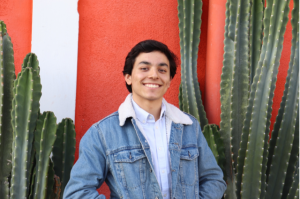
What has been your journey over the last few years?
The last few years I have been studying urban planning at the USC Price School of Public Policy. This has fueled my interest in urban issues, such as the ones that the EH MATTERS cohort investigates. I have also studied Spanish as a minor and use what I have learned to participate in teaching programs of English as a second language.
How do you hope to make a difference in environmental health?
I hope to bring changes in environmental health through policy and planning. I am interested in understanding how the built environment impacts human health. I want to incorporate environmental justice and environmental health into planning, so that all future developments and plans take environmental health into consideration.
What led you to pursue the EH MATTERS internship?
I became interested in the EH MATTERS internship through my planning classes. My professors would lecture on the important role that planning has had on communities, and how planning must be preventative rather than reactive to address urban problems. I wanted to apply these principles into practice, leading me to apply to the EH MATTERS program to learn more about environmental health.
How do you see this program helping to drive your future?
This program provides mentorship, research skills, and endless opportunities to learn. The EH MATTERS program will help me understand and guide my own future research with the skills that the program offers. It also helps me to get involved with the LA community to directly apply what I learn to real communities.
How do you want to make a difference in public health/environmental health outside of the classroom?
As an immigrant, I want to make a difference for immigrant communities that often are left out of conversations regarding public and environmental health. Growing up in the San Fernando Valley I was able to observe the disproportionate effect that issues such as pollution and freeway construction have on predominantly immigrant communities. I want to work alongside these communities, creating a cooperative solution to the pressing urban problems.
What message would you like to share with other students wanting to pursue an internship in environmental health?
I encourage students from all disciplines to pursue an internship in environmental health. Initially, I thought that as an urban planner I did not qualify for an internship in environmental health. But the reality is that students from all disciplines are needed in the field of environmental health in order to provide a comprehensive solution to the problem.
What diverse perspective do you bring to EH science, why is it important to have diverse voices and experiences in EH?
As an immigrant from Mexico who has grown up in the San Fernando Valley, I provide a distinct perspective to EH science. I understand the community dynamic of EH science and have come to appreciate it more through this internship. One of the reasons I got involved in EH science was for the community building aspect, which is crucial to environmental justice. It is important to have diverse experiences in EH to make sure that all voices are represented and accounted for.
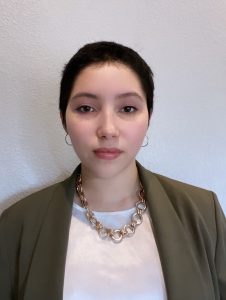
What has been your journey over the last few years?
As a Dallas native, I came to USC seeking a degree in petrochemical engineering in the hopes of researching an alternative to the hydraulic fracturing that had caused lots of environmental damage and anthropogenic earthquakes throughout North Texas. When I first arrived in Los Angeles, I began volunteering with a local branch of STAND LA (Standing together against neighborhood drilling) and learned about the (now defunct) Jefferson Drill Site less than a mile away from USC’s main campus. Through the canvasing and community organizing, I heard the stories of families plagued by asthma, cancer and cardiovascular disease as a direct result of living next to this hazardous drill site. On top of harming the environment, discovering that oil drilling disproportionately impacted low-income communities of color forced me to recognize that the petrochemical industry is a giant that requires broader change than the simple fracking alternative that I originally envisioned. I quickly changed my research interests from lab-based to community-driven by joining the Institute of Inequalities in Global Health, actively participating in the Environmental Student Assembly and seeking out undergraduate course work that focused on the environment and climate related health. When I was applying for my master’s in public health program, I found out about the EH MATTERS program and realized that it was the perfect culmination of all of my interests.
How do you hope to make a difference in environmental health?
I want to combine my technical and industry knowledge as a chemical engineer with my epidemiological skills from my MPH to raise awareness and advocate for environmental justice policies, starting with the communities most disproportionately burdened by environmental hazards. I plan on going to law school and pursuing environmental law with the goal of implementing the regulatory policies I spent my undergraduate career exploring.
What led you to pursue the EH MATTERS internship?
I wanted more experience in community advocacy for environmental issues. I strongly believe that change starts from the bottom, and in the case of environmental justice it begins with the communities most affected by environmental hazards such as industrial air pollutants to drive sustainable change. After learning about the community-based research conducted by some of the EH MATTERS faculty, I realized that this program would help me engage with the communities I wanted to advocate for.
How do you see this program helping to drive your future?
Participating in EH MATTERS will develop the skillset I need to represent for environmental justice communities on larger platforms. By amplifying the voices of the environmental justice communities, this program shows me the type of leader I need to be to truly address their needs and strive for better regulatory policies.
How do you want to make a difference in public health/environmental health outside of the classroom? I’m currently developing a community training curriculum to help communities in South Los Angeles implement an environmental justice program from. I want to use the skills I’m developing in my internship to organize larger community trainings, protests and policy forums to mobilize environmental justice communities to advocate for change directly from the City of Los Angeles.
What message would you like to share with other students wanting to pursue an internship in environmental health?
The health of the environment is deeply intertwined with the health of the human populations inhabiting it. If you want to make a widespread impact that enables people to advocate for safe and healthy communities, an environmental health internship is a great place to start.
What diverse perspective do you bring to EH science, why is it important to have diverse voices and experiences in EH?
Because environmental issues affect every community and person across various demographic lines, it’s critical to have diverse voices in environmental health to create inclusive solutions that benefit as many people as possible.
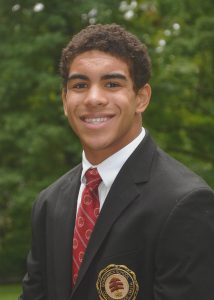
What has been your journey over the last few years?
I have had the fortunate pleasure of a life without many difficulties. I grew up in an affluent area, attended a private school for all my life, and now go to one of the most elite institutions in the country. A lot of my journey has been about what comes next
How do you hope to make a difference in environmental health?
I have always had a passion for science. Maybe it was its grand scope, its inherent mystery, or its applicability to everyday life that attracted me to the field. That interest in science has manifested itself in numerous phases throughout my life from my early obsession with black holes, to constantly watching animal documentaries on movie night, to now environmental issues. Environmental health—for lack of better words—is real, tangible. Unlike black holes which may remain a mystery forever, environmental issues are very well defined. To me, environmental issues are solvable problems, despite how grand they may be. So many environmental problems are multifaceted and complex, yet finding that evasive solution is what I hope to achieve within this field.
What led you to pursue the EH MATTERS internship?
EH MATTERS caught my attention just by name alone. I knew I wanted to pursue some sort of science-based research, and Environmental Health really peaked my interest. Being a man of color, EH MATTERS also gave me a platform to speak for my community. Overall, it was a blend of everything I wanted in an internship.
How do you see this program helping to drive your future?
So much exposure to environmental health issues is going to shape my life. It’s hard even just to look around without seeing environmental problems everywhere. This program—I hope—will provide me with a groundwork to continue to solve environmental problems throughout my lifetime.
How do you want to make a difference in public health/environmental health outside of the classroom?
A lot of the environmental issues are unstructured; there is no guide to solve these problems and that is reflected within the community of people passionate about environmental health. For me, I really hope to make at least one difference in some area.
What message would you like to share with other students wanting to pursue an internship in environmental health?
There’s always something to do and so much to do within environmental health, so much so it can feel overwhelming at times. That said, find one specific topic you’re passionate about and explore it.
What diverse perspective do you bring to EH science, why is it important to have diverse voices and experiences in EH?
Environmental health is a global issue; it affects everyone. It’s a topic that needs to be tackled in a diverse way, linearity won’t solve environmental issues. Personally, my background is not anything special, but it certainly different from other people I’ve seen around me. That is all I need to provide a new perspective.
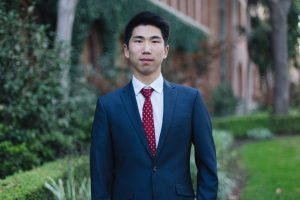
What has been your journey over the last few years?
I graduated from Cupertino High in 2019 and initially came into USC intending to double major in Environmental Science and Health and Data Science. By chance, I found out about a new interdisciplinary major, Quantitative Biology, that seemed to combine the two majors into one. Excited by the potential, I switched over and have been a Quantitative Biology major ever since. During my time at USC, I’ve also become involved in other organizations including the Asian Pacific American Student Assembly, Biology Club, Society 53, and other campus research.
How do you hope to make a difference in environmental health?
One of the things I admire most about science is its inexorable progress. No matter the hurdles that we come across, humanity preserves, innovates, and overcomes. When it comes to research, a single publication by itself might not amount to much in the short term, but the research process builds up our bank of knowledge paper by paper so that future experiments can lead to success. I hope to do exactly that - to contribute to the field of environmental health with the understanding that even if my findings don’t seem to bear fruit now, it can shape important decisions down the road made by other scientists.
What led you to pursue the EH MATTERS internship?
As amazing as my time in the QBio program has been, it lacks topics related specifically to environmental science. As someone who is passionate about the environment - particularly related to conservation, health, and justice - I thought that the EH MATTERS program would be perfect for filling in those gaps. I chose Dr. Habre’s lab because air pollution has been heavy on my mind recently given the growth in intensity and frequency of California’s forest fires. Additionally, air pollution is often an insidious agent. Dramatic sky blotting ash only happens at most a few times per year, but other pollutants such as, say, ozone, are much harder to be aware of, yet also very dangerous. I hope to tackle challenges that can influence policy or technology to address these issues.
How do you see this program helping to drive your future?
I’m really excited about all the new skills that I’m sure to pick up! I work with Dr. Rima Habre, and although it’s only a few weeks into the program, she’s already introduced me to so many exciting tools and methods of statistical analysis. I am particularly interested in these skills because my 4-year course plan doesn’t allow for any statistics classes, so I think this is a perfect way to round out my knowledge. Additionally, exposure to research in the field encourages me to stay abreast of environmental news - something which I’ve found myself slowly disengaging from since I joined college.
How do you want to make a difference in public health/environmental health outside of the classroom?
My current research with Dr. Habre involves investigating the chemical makeup of PM2.5, which is important for analyzing long term health effects of specific chemicals and improving public health. Other than that, I hope to make research more accessible to laymen. Academic writing uses a lot of jargon. While this can be necessary due to the deep and complex nature of the research topic, it makes comprehension much more difficult for everyday people (or even just curious students!). Democratizing science makes it easier for people to stay informed and make knowledgeable decisions when it comes to other facets of their lives, particularly given the politicization of health.
What message would you like to share with other students wanting to pursue an internship in environmental health?
Do it! Environmental health is such a broad field that you’re sure to find something you’re interested in. What I especially love about environmental health research is that it makes me more aware of my environment, from the material of the utensils I use to the quality of the air I breathe in. By participating in environmental research, I’m sure you will also gain similar awareness, so you’ll be helping yourself as well as others live longer, healthier lives.
What diverse perspective do you bring to EH science, why is it important to have diverse voices and experiences in EH?
Diversity in any group is vital. There are countless studies out there showing that diverse groups have better decision making capabilities, are more likely to succeed, etc. Similarly to many other fields, lack of representation in environmental health harms the field by limiting perspective and innovation. Scientists should do their best to be as objective as possible in their research. As much as we try, however, our unconscious biases will always subtly influence us to some extent. I bring with myself unique experiences that can hopefully help combat these unconscious biases by questioning the assumptions of one group or person. I strive to create discussion that is mindful and driven so that we can avoid the pitfalls of a monolithic group.
Program Directors: Ed Avol and Jill Johnston
Program Manager: Wendy Gutschow (wgutscho@usc.edu)
For more information, contact: Wendy Gutschow, wgutscho@usc.edu
EH MATTERS is funded by NIEHS Grant #R25ES031867